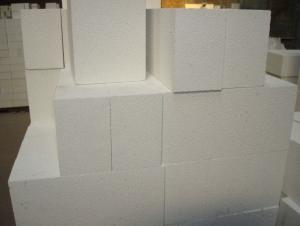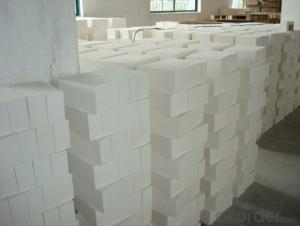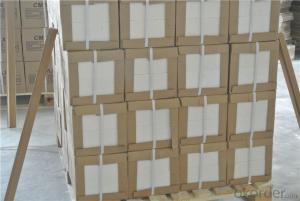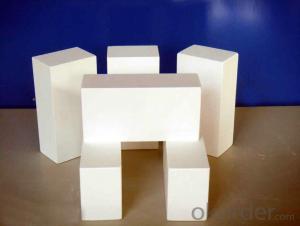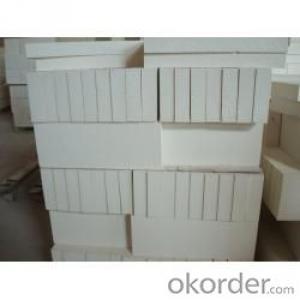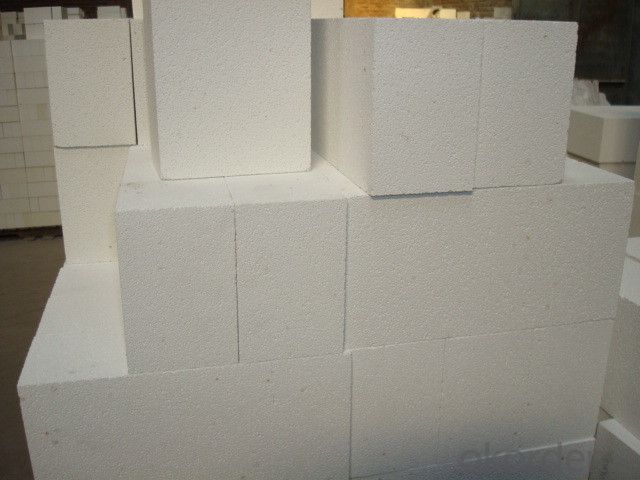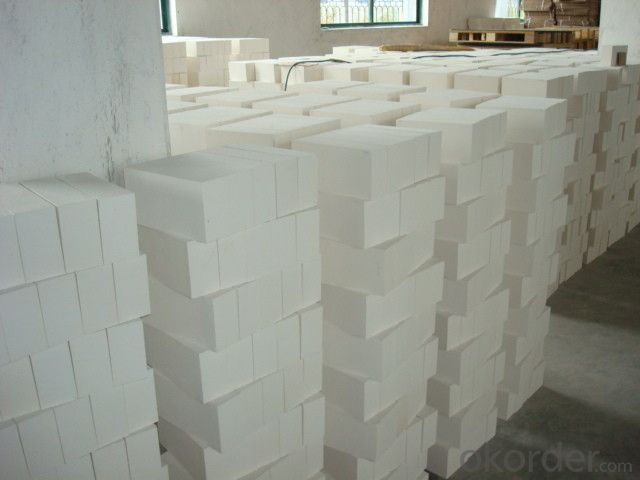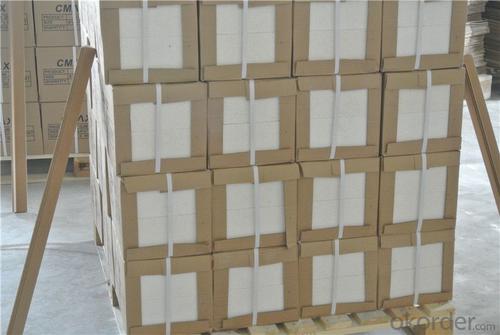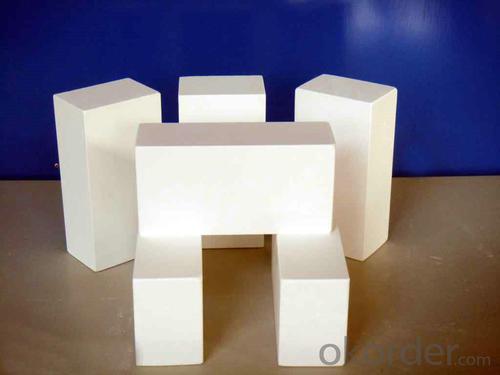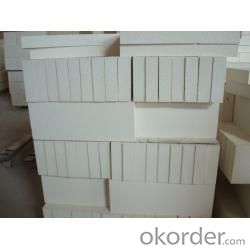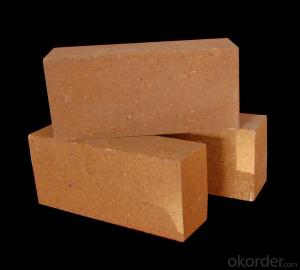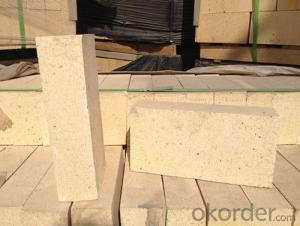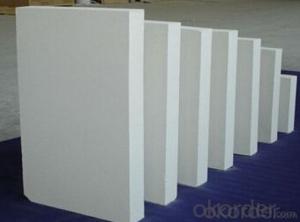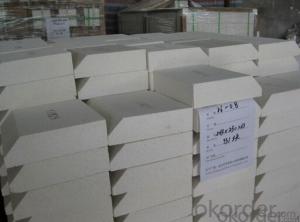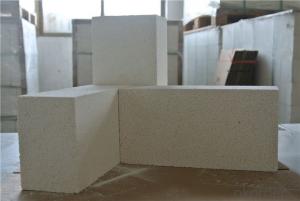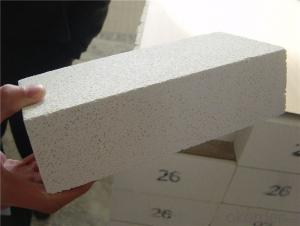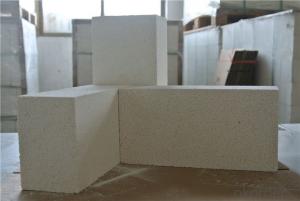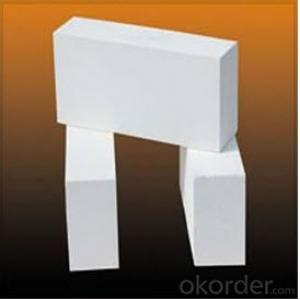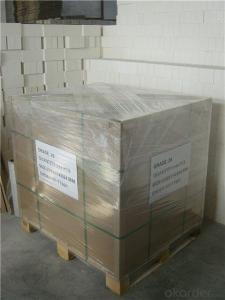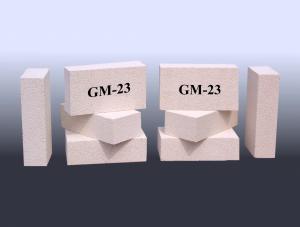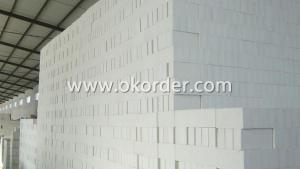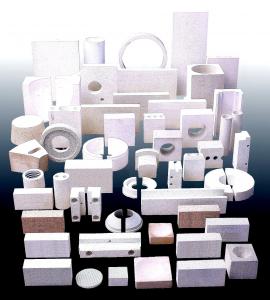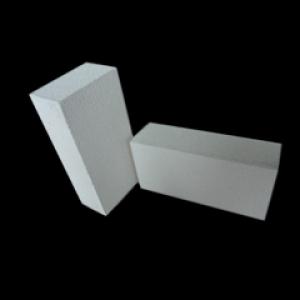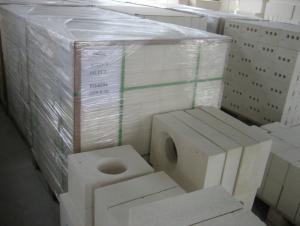Insulating Fire Brick - Lightweight Insulation Refractory Clay for Industrial Furnaces
- Loading Port:
- Qingdao
- Payment Terms:
- TT OR LC
- Min Order Qty:
- 1 m.t.
- Supply Capability:
- 1000 m.t./month
OKorder Service Pledge
OKorder Financial Service
You Might Also Like
Thermal Insulation Fire Clay Brick
Refractory brick is a block of refractory ceramic material used in lining furnaces, kilns, fireboxes, and fireplaces.
We provide high quality Refractory Fire Bricks that are used on wide range in the various industries like Cement, Glass and Steel. Refractory Fire Bricks are provided as per the quantity and specifications required by the customers. We provide an extensive range of Refractory Fire Bricks at reasonable prices that depend upon the quantity ordered.
Application
Insulating Fire Brick are used for the lining of converter, alternating current arc furnace, direct Current arc furnace and the ladle slag line, etc.
Company Advantage
(1)Long Insulating Fire Brick manufacture history: 25 years manufacturer
(2)Advanced equipment
(3)Diversification of production standards: ISO ANSI FEPA JIS ASTM
(4)Professional marketing team and after-sale service
Insulating Fire Brick main feature:
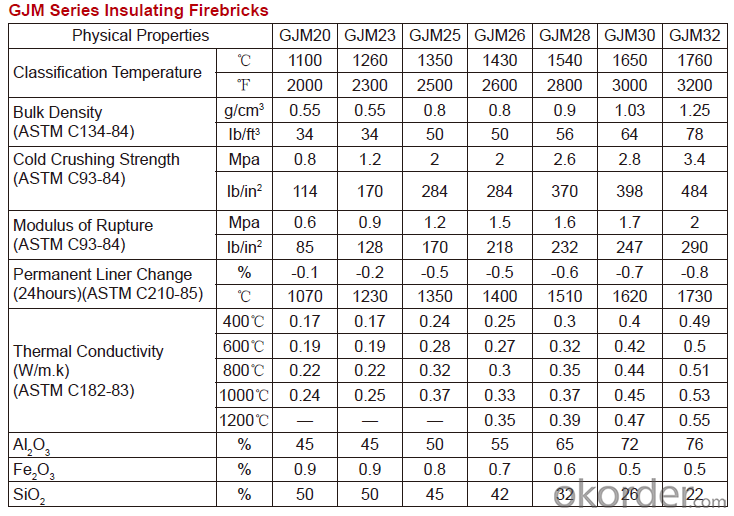
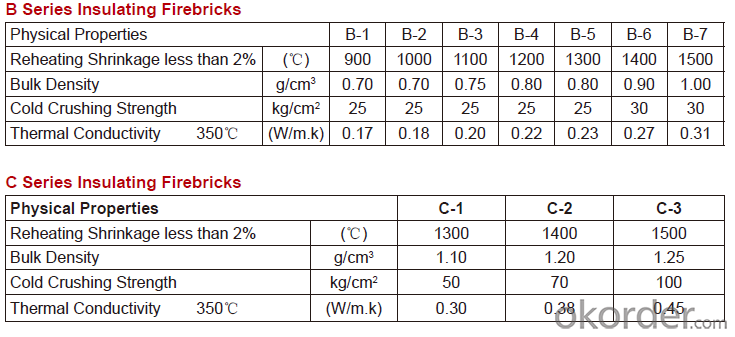
Equipment
1 unit of Ceramic Abrasive (SG Abrasive) pilot production line
2 units of Compact grain Abrasive pilot production lines
1 unit of high-end coated abrasives (abrasive cloth) production line
2 units of Boron Carbide production lines
Q1 What’s the transport method?
A1 FCL delivery goods with wooden pallet or wooden case by sea; If LCL delivery, must with wooden case; Sometimes need open top, flat rack or bulk cargo.
Q2 What’s the required payment term?
A2 Generally 30% TT as the prepayment, 70% TT before delivery. If need, 100% Irrevocable Letter of Credit or negotiation.
Q3 Which country are our products exported to?
A3 Apart from entire Chinese market, the US, Russia, Japan, Korea, Australia and some Southeast Asian Nations.
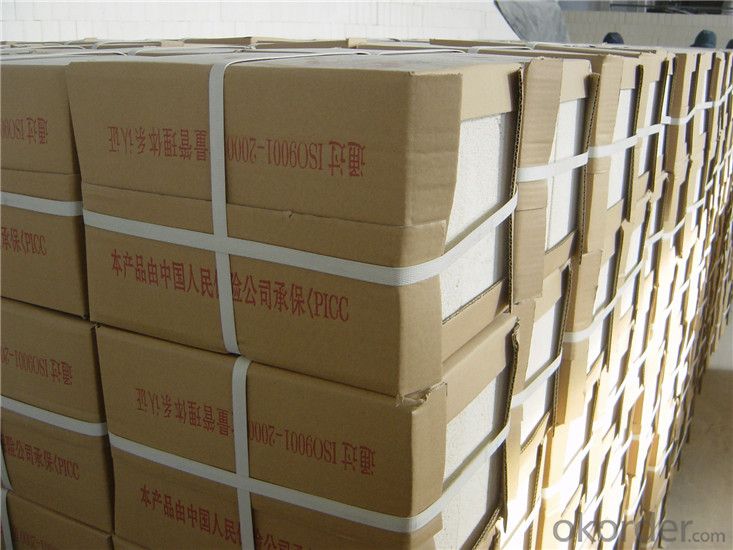
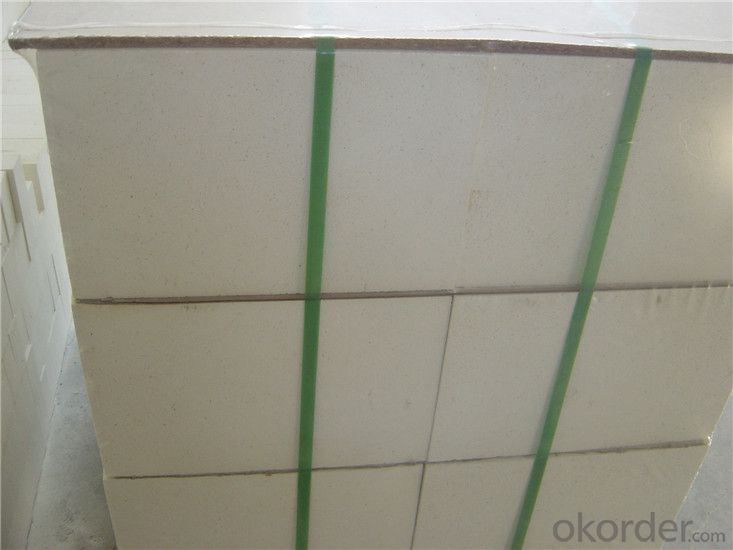
- Q: Are insulating fire bricks resistant to flame spread?
- Yes, insulating fire bricks are resistant to flame spread.
- Q: Can insulating fire bricks be used in the construction of tundishes?
- Insulating fire bricks are indeed applicable for tundish construction. They possess exceptional thermal insulation qualities and are lightweight, which makes them perfect for situations that demand heat retention. Tundishes, utilized in the steel industry to regulate molten metal flow, necessitate materials capable of enduring high temperatures while minimizing heat loss. Insulating fire bricks excel in this area, successfully enduring extreme temperatures within tundishes, thereby safeguarding the desired molten metal temperature and preventing heat loss. Moreover, their lightweight nature facilitates uncomplicated handling and installation during tundish construction. In conclusion, insulating fire bricks prove to be a suitable choice for tundish construction due to their thermal insulation qualities and ability to withstand high temperatures.
- Q: Are insulating fire bricks suitable for use in carbon black furnaces?
- Insulating fire bricks, made from refractory materials with excellent insulation properties, are well-suited for carbon black furnaces. These furnaces, operating at temperatures exceeding 1,000 degrees Celsius, benefit from the use of insulating fire bricks by reducing heat loss and improving energy efficiency. The bricks' thermal shock resistance is crucial for the cyclic heating and cooling within the furnace. Furthermore, their low thermal conductivity helps maintain a stable temperature inside the furnace and prevents excessive heat loss. In conclusion, insulating fire bricks provide a dependable and efficient lining option for carbon black furnaces.
- Q: Are insulating fire bricks resistant to thermal spalling?
- Insulating fire bricks exhibit resistance to thermal spalling, which is the process of a material cracking or fracturing as a result of abrupt fluctuations in temperature or thermal shock. These bricks are specifically engineered to endure elevated temperatures and thermal cycling without spalling. Their low thermal conductivity allows for efficient insulation against heat transfer, thereby reducing the strain caused by thermal expansion and contraction. Moreover, the composition and structure of insulating fire bricks are meticulously designed to offer outstanding protection against thermal spalling, rendering them a dependable option for applications involving intense heat conditions.
- Q: Is it necessary to use mortar when installing insulating fire bricks?
- Yes, it is necessary to use mortar when installing insulating fire bricks. Mortar acts as a bonding agent between the bricks, ensuring stability and preventing heat loss. It also helps to seal any gaps or cracks, enhancing the insulation properties of the bricks.
- Q: Is it possible to cut insulating fire bricks to fit custom shapes?
- Yes, it is possible to cut insulating fire bricks to fit custom shapes. Insulating fire bricks are made from lightweight materials such as ceramic fiber, which can be easily cut or shaped using various tools. Common methods for cutting insulating fire bricks include using a saw, knife, or even a hot wire cutter. It is important to follow proper safety precautions and wear protective gear when cutting these bricks, as the cutting process may produce dust or sharp edges. With the right tools and techniques, it is possible to cut insulating fire bricks to fit any desired custom shape.
- Q: Can insulating fire bricks be used in contact with molten metals?
- Yes, insulating fire bricks can be used in contact with molten metals. Insulating fire bricks are designed to withstand high temperatures and provide excellent insulation properties. They are commonly used in applications where there is a need to contain and distribute heat, such as in kilns, furnaces, and industrial ovens. When in contact with molten metals, insulating fire bricks can withstand the extreme heat and prevent heat transfer from the molten metal to the surrounding environment. This helps to maintain temperature stability and protect the structural integrity of the equipment. However, it is important to note that the specific type and composition of insulating fire bricks should be carefully chosen based on the temperature and the type of molten metal they will come into contact with. Different metals have different melting points and can have varying corrosive effects on different materials. Therefore, consulting with experts or manufacturers is recommended to ensure the right type of insulating fire bricks are selected for each specific application.
- Q: Are insulating fire bricks resistant to weathering or aging?
- Yes, insulating fire bricks are generally resistant to weathering and aging. These bricks are designed to withstand high temperatures and harsh conditions, making them durable and long-lasting. They are often used in applications where exposure to extreme weather, such as rain, snow, and sunlight, is common. However, it is important to note that the specific composition and quality of the bricks can vary, so it is advisable to consult the manufacturer or supplier for detailed information regarding their weathering and aging resistance properties.
- Q: Can insulating fire bricks be used for insulation in steam boilers?
- Yes, insulating fire bricks can be used for insulation in steam boilers. These bricks are designed to withstand high temperatures and have excellent thermal insulation properties. They are commonly used in various applications that require insulation, including steam boilers. Insulating fire bricks are able to minimize heat loss and improve energy efficiency in steam boilers by providing a barrier that prevents heat transfer to the surrounding environment. Additionally, their lightweight and porous structure make them easy to handle and install in steam boilers. Therefore, insulating fire bricks are an ideal choice for insulation in steam boilers, as they help to enhance their performance and reduce energy consumption.
- Q: Can insulating fire bricks be used for chimney lining?
- Yes, insulating fire bricks can be used for chimney lining. Insulating fire bricks are specifically designed to withstand high temperatures and are excellent at retaining heat. They have a low thermal conductivity which helps to prevent heat loss and improve the efficiency of the chimney. Additionally, insulating fire bricks are resistant to cracking and spalling, making them a durable option for chimney lining. However, it is important to ensure that the insulating fire bricks used are suitable for the specific type of chimney and comply with local building codes and regulations.
Send your message to us
Insulating Fire Brick - Lightweight Insulation Refractory Clay for Industrial Furnaces
- Loading Port:
- Qingdao
- Payment Terms:
- TT OR LC
- Min Order Qty:
- 1 m.t.
- Supply Capability:
- 1000 m.t./month
OKorder Service Pledge
OKorder Financial Service
Similar products
Hot products
Hot Searches
Related keywords
